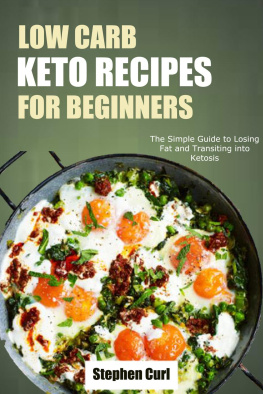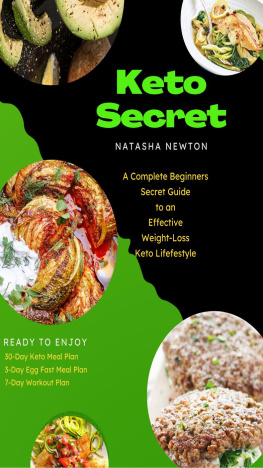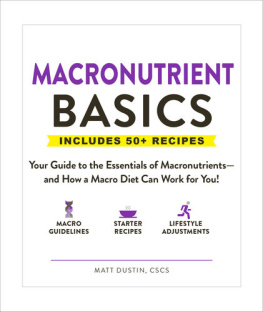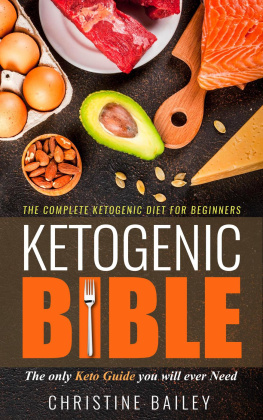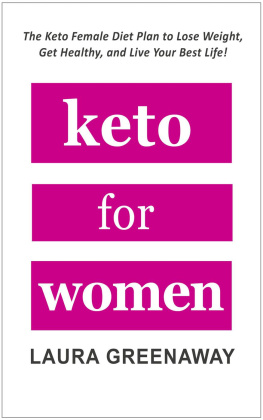First published in 2022 by Victory Belt Publishing Inc.
Copyright 2022 Tara Garrison
No part of this publication may be reproduced or distributed in any form or by any means, electronic or mechanical, or stored in a database or retrieval system, without prior written permission from the publisher.
ISBN-13: 978-1-628604-40-5
The author is not a licensed practitioner, physician, or medical professional and offers no medical diagnoses, treatments, suggestions, or counseling. The information presented herein has not been evaluated by the U.S. Food and Drug Administration, and it is not intended to diagnose, treat, cure, or prevent any disease. Full medical clearance from a licensed physician should be obtained before beginning or modifying any diet, exercise, or lifestyle program, and physicians should be informed of all nutritional changes.
The author/owner claims no responsibility to any person or entity for any liability, loss, or damage caused or alleged to be caused directly or indirectly as a result of the use, application, or interpretation of the information presented herein.
Cover design by Kat Lannom
Front cover photo by Lyman Winn
Interior design by Charisse Reyes and Crizalie Olimpo
Illustrations by Eli San Juan and Allan Santos
Printed in Canada
TC 0121
CONTENTS
CHAPTER 1
Why Keto Is a Smart Move
CHAPTER 2
If Keto Is So Awesome, Why Not Stay Keto Forever?
CHAPTER 3
How to Bring Carbs Back in and Match Your Workouts with Your Nutrition
CHAPTER 4
Where to Go from Here: Bringing Back the Carbs and Maintaining Metabolic Flexibility
APPENDIX A
One-Week Targeted Ketogenic Diet Plan
APPENDIX B
One-Week Cyclical Ketogenic Diet Plan
APPENDIX C
Four-Week Bring-Back-the-Carbs Plan
APPENDIX D
Discounts on Products
Im so excited to bring you this book that has been born out of the trenches of coaching people one-on-one through the ketogenic diet as my full-time job for the past five years.
Back in 2017, when keto was really building momentum, the message from the keto community was loud and clear: keto is the superior way for humans to eat.
While I saw the life-changing benefits of the ketogenic diet for many people, I also observed a lot of dogmatic attitudes and cultlike vibes that didnt sit well with me. I started seeing people getting their identities wrapped up in it. Labeling someone as a fat burner or sugar burner became commonplace, with the clear connotation that fat burners were superior, more educated people. Sugar burners, the people who ate carbs and ran on glucose, were somehow regarded as inferior for not understanding that optimized humans run on ketones. I started seeing fearmongering messages saying that carbs will inflame youor even kill youwhich created a fear of all carbohydrates, except for the approved keto dietfriendly vegetables.
Fear around food soon grew to an astronomical level in the keto community. All of a sudden, a huge number of people were claiming to be carb addicts. This label made me raise an eyebrow. Addicted to a macronutrient? The macronutrient that is the primary fuel source for the human body? I didnt like what I was seeing on the mental and emotional side of things in the keto world. Labeling foods as bad or prohibited is never a healthy practice.
I was discouraged to see that even though I tried to help my clients and followers understand that carbs werent bad and were to be restricted only temporarily to enhance the metabolism, people almost always developed a negative relationship with carbs anyway. For many, a vine-ripe grape and a cookie fell into the same category: bad. And because people are human and carbohydrates are delicious, when they ate one carb-rich food, they would often go completely off the rails because they already blew it and binge on all the foods theyd been missing. These kinds of behaviors can have a massive negative effect on a persons self-esteem and create disordered eating patterns.
All this made me ask myself, What is going on here?
Im all for sharing information with people and giving them options for nutritional strategies that might work for them, but the messages from the keto world were not that. There was no room for questioning whether a carbohydrate-based diet might be beneficial for a person. Even hinting at it would be embarrassing. You should know better. Intelligent people know better.
The keto community became an elitist group. Keto didnt work for you? It couldnt have been ketos fault; you must not have done it right. I have seen people be bullied and kicked out of ketogenic online communities for even questioning keto. These trends seriously concerned me because, as a nutrition coach, I know the detrimental effects that this kind of thinking can have on people when they become so identified with a nutritional approach that they wont change, even if its hurting their health.
Now let me give you some context by sharing my own keto journey.
My experience with the ketogenic diet was pretty unique in the fact that when I started, I had 11 percent body fat and was in incredible shape. Most people start keto as a weight-loss tactic or to heal something in their bodies. I didnt have either of those issues, so I was coming at it from a healthy metabolic standpoint.
When I first tried keto, I got a DEXA scan to measure my body composition. The results: 11.3 percent body fat, 122 pounds of lean mass, and 15 pounds of fat on my body. Thats very lean for a woman. I had no idea I was that lean. I had just run a marathon in 3 hours 17 minutes (a per-mile pace of 7:31 minutes), qualified for the Boston Marathon, and was training heavily in the gym. I was in great shape. To get there, I had followed a higher-protein diet with low to moderate carbohydrates and low to moderate dietary fat. (Fat and carbs fluctuated; I just prioritized whole foods from nature.)

BEFORE KETO
When I was introduced to keto, I was hesitant at first. I felt like I had already found my groove in nutrition. I was a lean, mean, muscly machineand I had accomplished that without tracking my food. But I was intrigued by and interested in the reported health benefits of keto, especially for the brain, so I decided to give it a go.
The first thing I noticed was that my mind felt better. I felt less stressed and calmer. I felt like I could think more clearlylike my whole brain had woken up. Mentally, I felt like a superhuman.
However, I also noticed that I was gaining weight. Now, I intentionally wanted to get my body fat a little higher after finding out I was at 11 percent. Ten to 12 percent is essential fat for a woman. So I purposefully indulged in more calories.
When I went back for another DEXA scan four months later, I had gained 11 pounds, about 10 of which were fat, which put me at 17 percent body fat. I was okay with that, but I definitely didnt want to keep gaining body fat at that rate; that is a lot of gain in four months! I decided I felt best at around 14 to 15 percent body fat and wanted to get back down to that range and maintain it. So I played with keto in all sorts of ways, but no matter how hard I tried, that bit of fat loss just wasnt happening. At my next scan a few weeks later, I had lost a couple of pounds, but they were from muscle mass. Four months later, after optimizing protein and post-workout nutrition, supplementing with leucine, and eating high-quality food, I scanned again only to find that I was up to 18 percent body fat and had lost 5.5 pounds of muscle mass.


